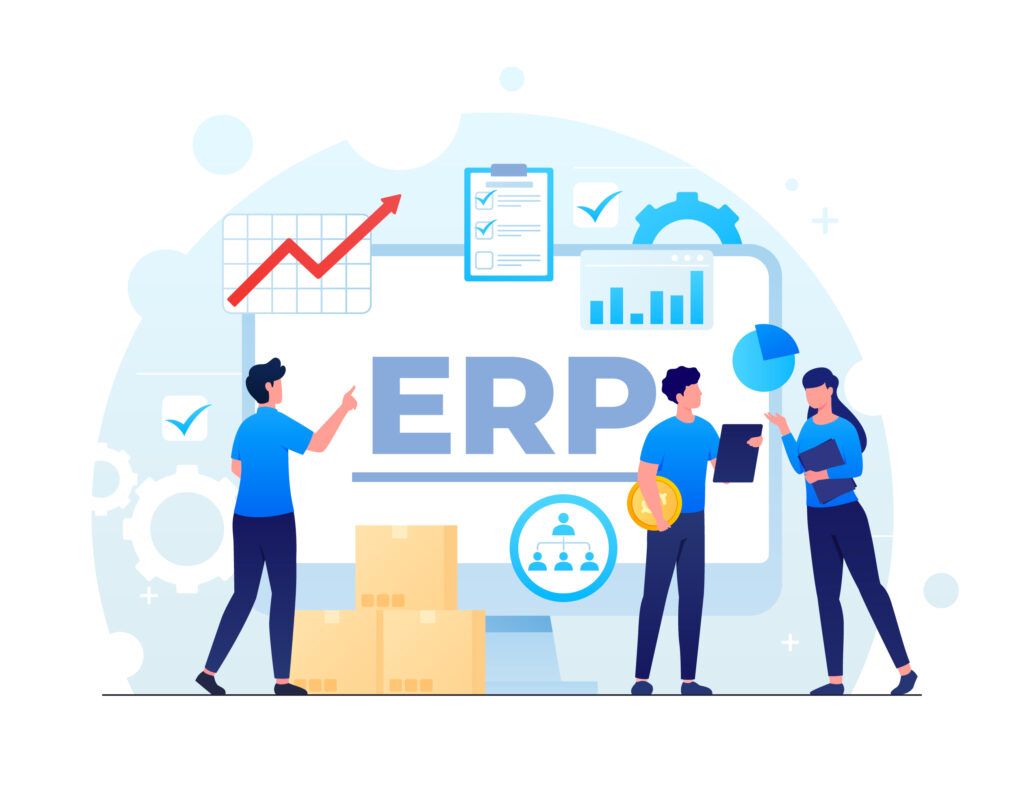Why You Shouldn’t Use Your ERP System as a QMS

We all know that maintaining high-quality standards is essential for success. Companies often rely on software systems to streamline their processes, with ERP (Enterprise Resource Planning) systems being a popular choice. However, when it comes to managing quality, an ERP system might not be the best tool for the job. Here’s why using your ERP as a Quality Management System (QMS) might not be the best approach.
Understanding the Roles of ERP and QMS
To understand why ERP systems are not ideal for quality management, it’s essential to differentiate between ERP and QMS.
- ERP Systems are designed to integrate core business processes such as finance, human resources, inventory management, and production. Their primary purpose is to enhance efficiency, improve resource management, and provide a centralized view of the business operations.
- QMS is specifically designed to manage and improve the quality of products and services. It focuses on meeting regulatory requirements, ensuring compliance, and driving continuous improvement across various aspects of quality, such as processes, products, and customer satisfaction.
While ERP systems excel at managing business processes, they often fall short in areas where specialized quality management tools are required. Here’s why:
Reasons Why ERP Should Not Be Used as a QMS
1. Lack of Specialized Quality Features
ERP systems typically lack the specialized features necessary for comprehensive quality management. While they can handle basic quality tasks, they often fall short in areas like:
- Document Control: Managing the creation, approval, distribution, and archiving of quality documents.
- Audit Management: Planning, scheduling, and conducting audits to ensure compliance with quality standards.
- Corrective Actions: Implementing and tracking corrective and preventive actions (CAPA) to address quality issues.
Without these features, businesses risk incomplete quality management, leading to gaps in compliance and oversight.
2. Complexity and Customization Challenges
Attempting to use an ERP system as a QMS often involves complex customizations to fit quality-specific workflows. This process can be costly and time-consuming, leading to potential issues such as:
- Disrupted Standard Operations: Customizations can interfere with the core functions of the ERP system, affecting its efficiency.
- Increased Implementation Time and Cost: Adapting an ERP system to serve as a QMS can lead to delays and additional expenses, diverting resources from other critical areas.
3. Limited Focus on Compliance and Regulatory Requirements
Quality management requires adherence to industry-specific regulations and standards, which ERP systems are not always equipped to handle. For industries with stringent compliance requirements, such as healthcare and pharmaceuticals, a dedicated QMS is essential for:
- Compliance Tracking: Ensuring that all processes meet regulatory standards.
- Audit Trails: Maintaining detailed records of quality processes and changes for auditing purposes.
Without these capabilities, businesses face the risk of non-compliance, leading to legal and financial repercussions.
4. Ineffective Quality Data Analysis
ERP systems may lack the advanced analytical tools needed for effective quality data analysis. Quality management involves identifying trends and root causes of quality issues, which requires:
- Advanced Analytics: Analyzing quality data to identify patterns and areas for improvement.
- Continuous Improvement Initiatives: Using data insights to drive quality improvements across the organization.
Without these tools, businesses may struggle to proactively manage quality, resulting in missed opportunities for improvement.
5. User Experience and Adoption Challenges
ERP systems are often designed for broader business functions, leading to user experience and adoption challenges for quality management teams. This can result in:
- User Resistance: Quality management tasks may become cumbersome or time-consuming, leading to reduced engagement.
- Ineffective Quality Management Processes: Without an intuitive interface, users may struggle to effectively manage quality processes, reducing the overall effectiveness of the quality management system.
Benefits of a Dedicated QMS
Investing in a dedicated QMS offers several advantages over relying on an ERP system for quality management:
1. Tailored Solutions for Quality Management
Dedicated QMS solutions offer specialized tools and features designed specifically for quality management, enabling businesses to handle:
- Document Control: Efficiently manage quality documents and ensure compliance.
- Audits and Inspections: Plan, conduct, and track audits with ease.
2. Enhanced Compliance and Reporting
QMS tools are designed to meet industry-specific standards and regulatory requirements, providing:
- Compliance Reports: Easily generate compliance reports to demonstrate adherence to quality standards.
- Audit Trails: Maintain detailed records for auditing and compliance purposes.
3. Focused Quality Analytics
QMS systems offer advanced analytics capabilities to help businesses:
- Identify Trends: Analyze quality data to identify patterns and areas for improvement.
- Drive Continuous Improvement: Use data insights to implement initiatives that enhance quality performance.
4. Improved User Experience and Adoption
With user-friendly interfaces and workflows, dedicated QMS tools encourage user engagement and adoption, resulting in:
- Effective Quality Management: Intuitive interfaces make it easy for users to manage quality processes efficiently.
- Increased User Engagement: User-friendly features lead to higher adoption rates and more effective quality management.
Conclusion
While ERP systems are powerful tools for managing business processes, they may not be the best choice for quality management. The specialized features, compliance capabilities, and user-friendly interfaces offered by dedicated QMS solutions make them a more suitable option for businesses looking to enhance their quality management efforts.
Investing in a dedicated QMS, like Trackmedium, can help your organization achieve better quality outcomes, meet regulatory requirements, and drive continuous improvement. To learn more about how a dedicated QMS can benefit your business, consider exploring Trackmedium’s comprehensive quality management solutions.




